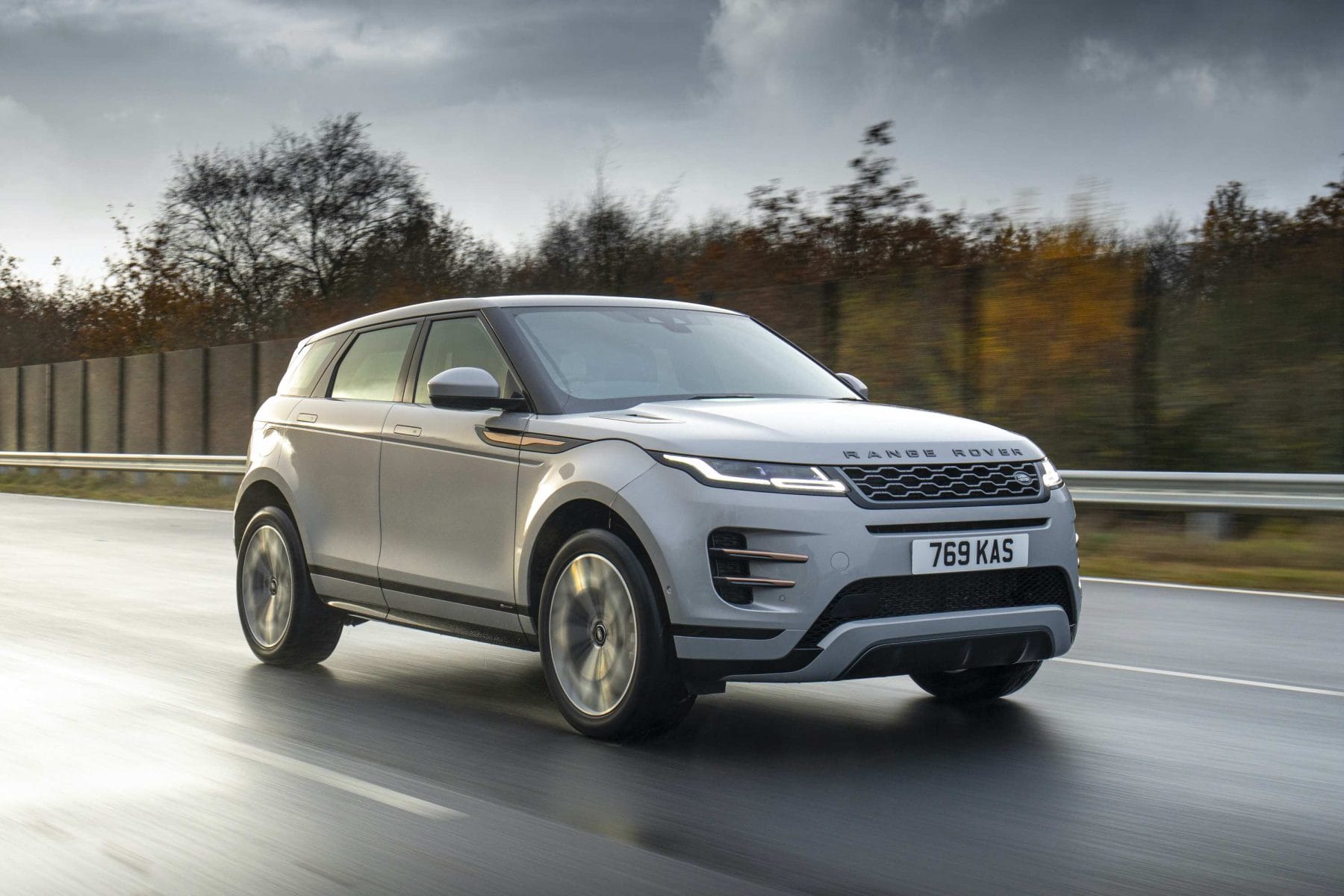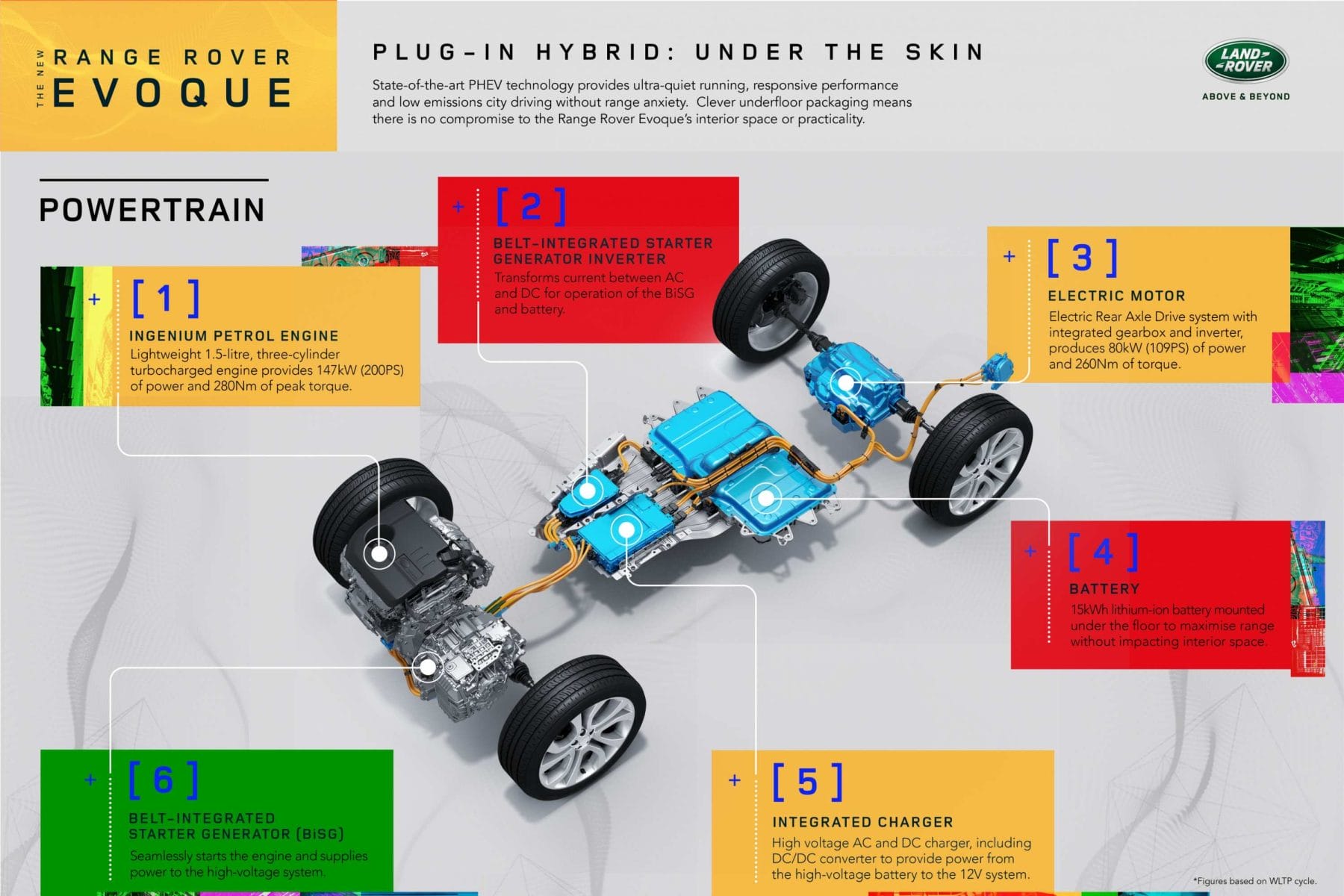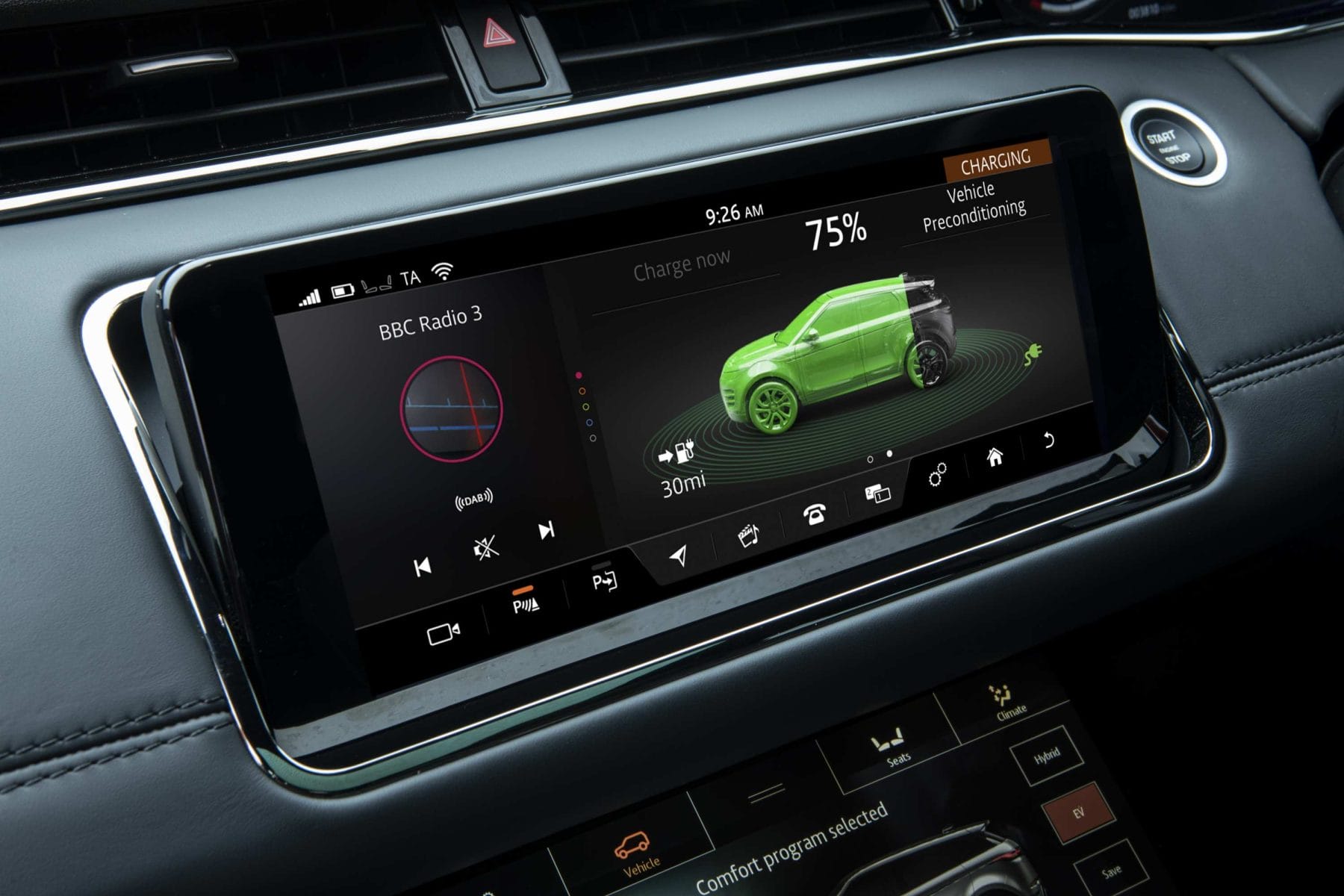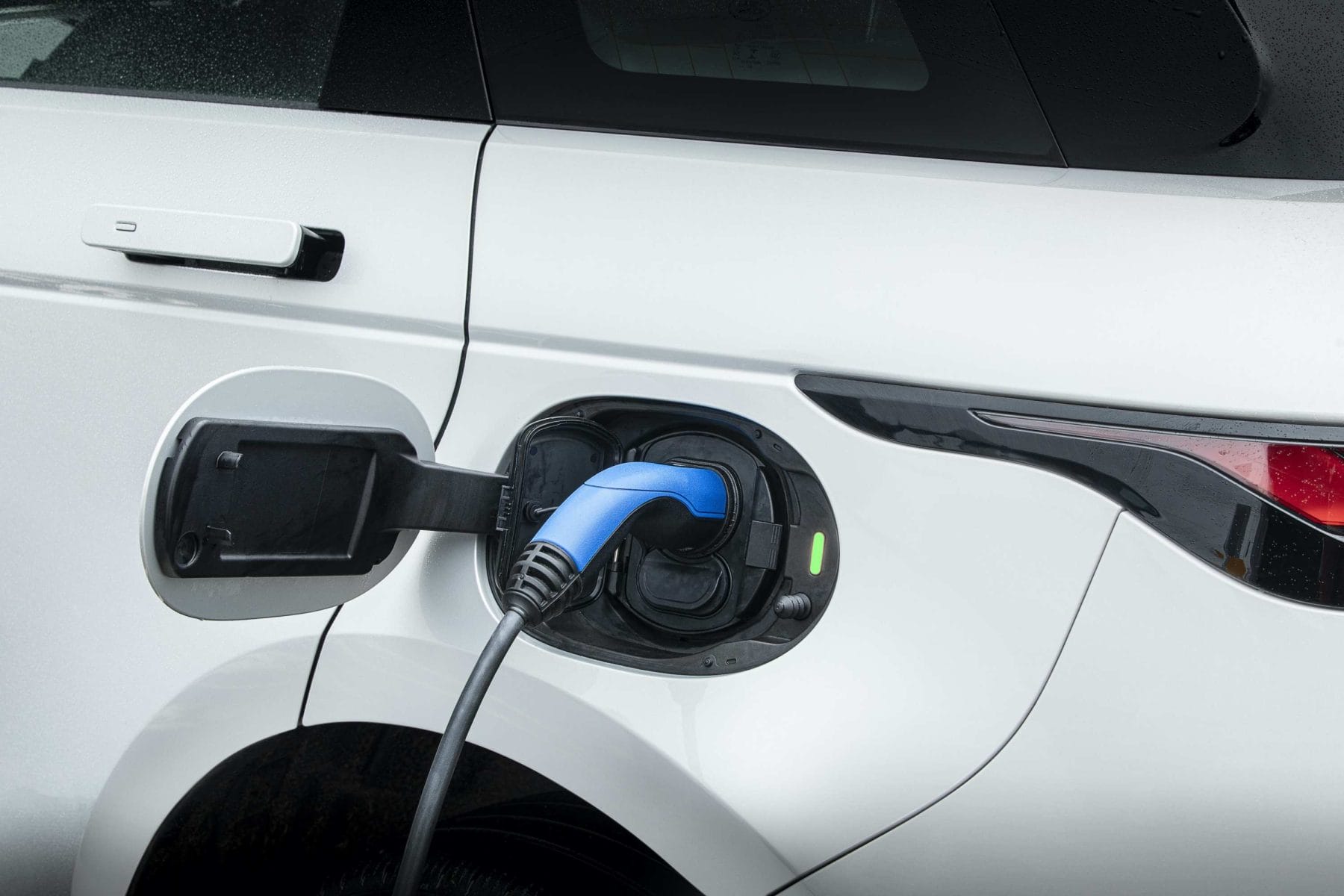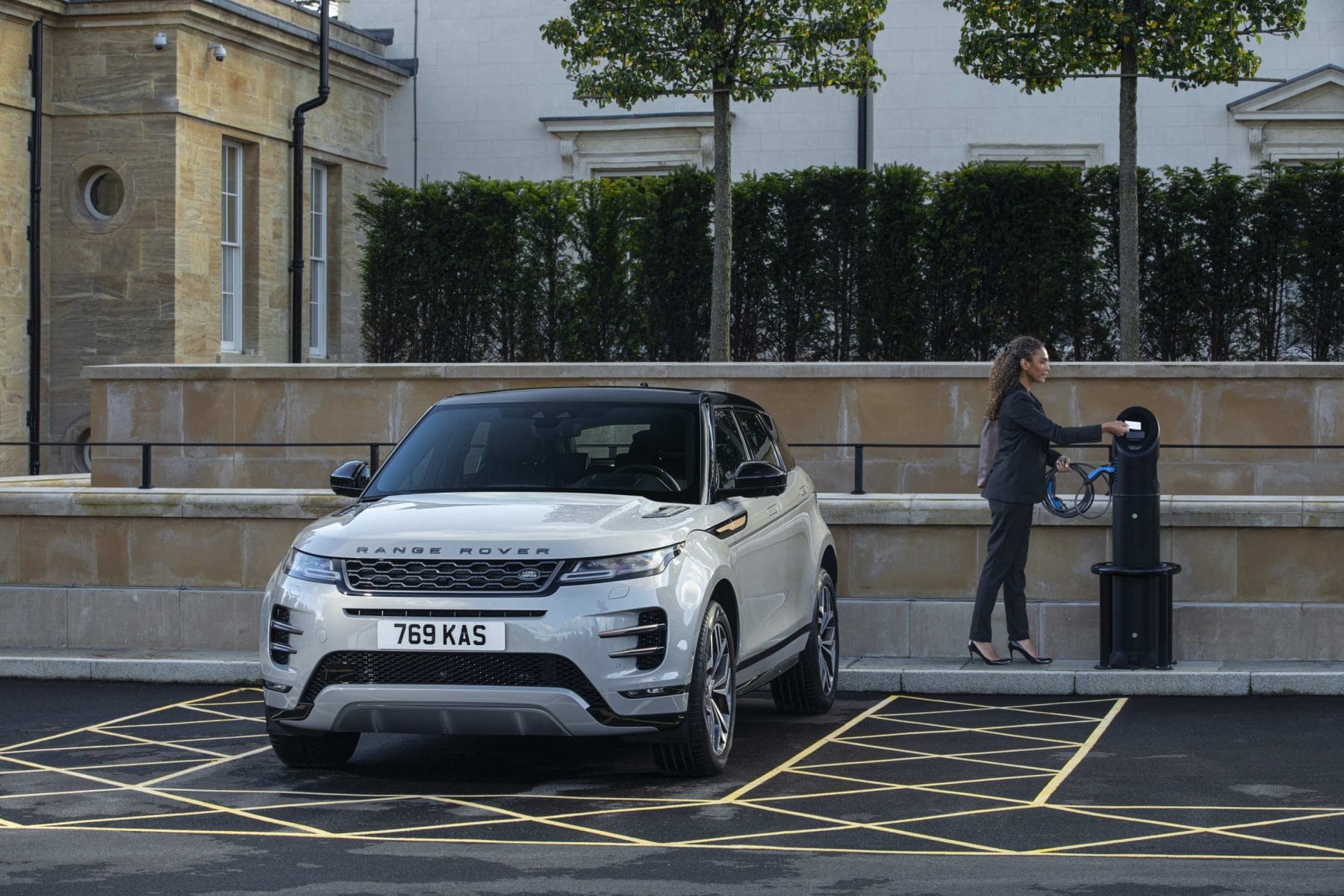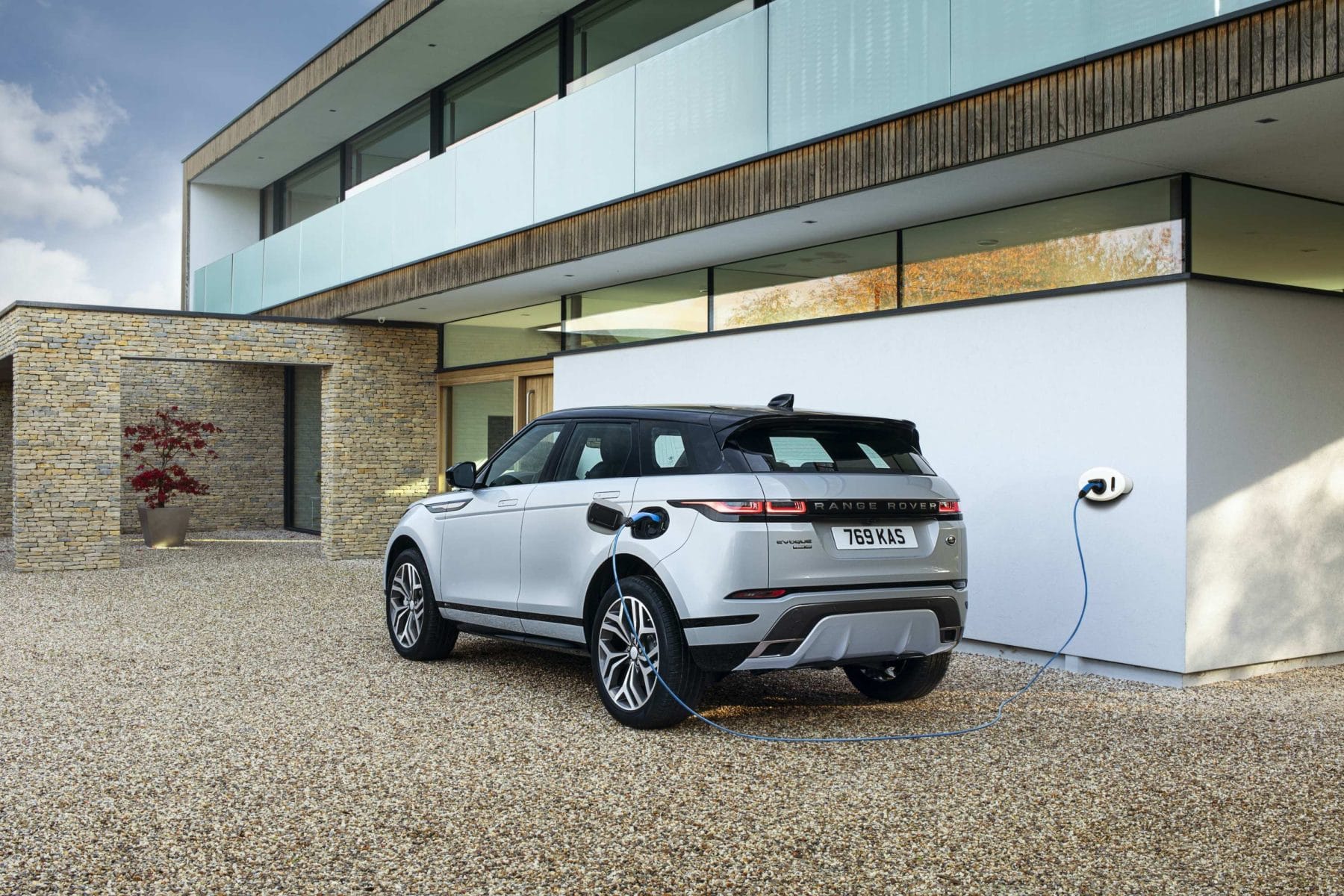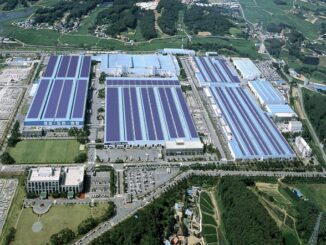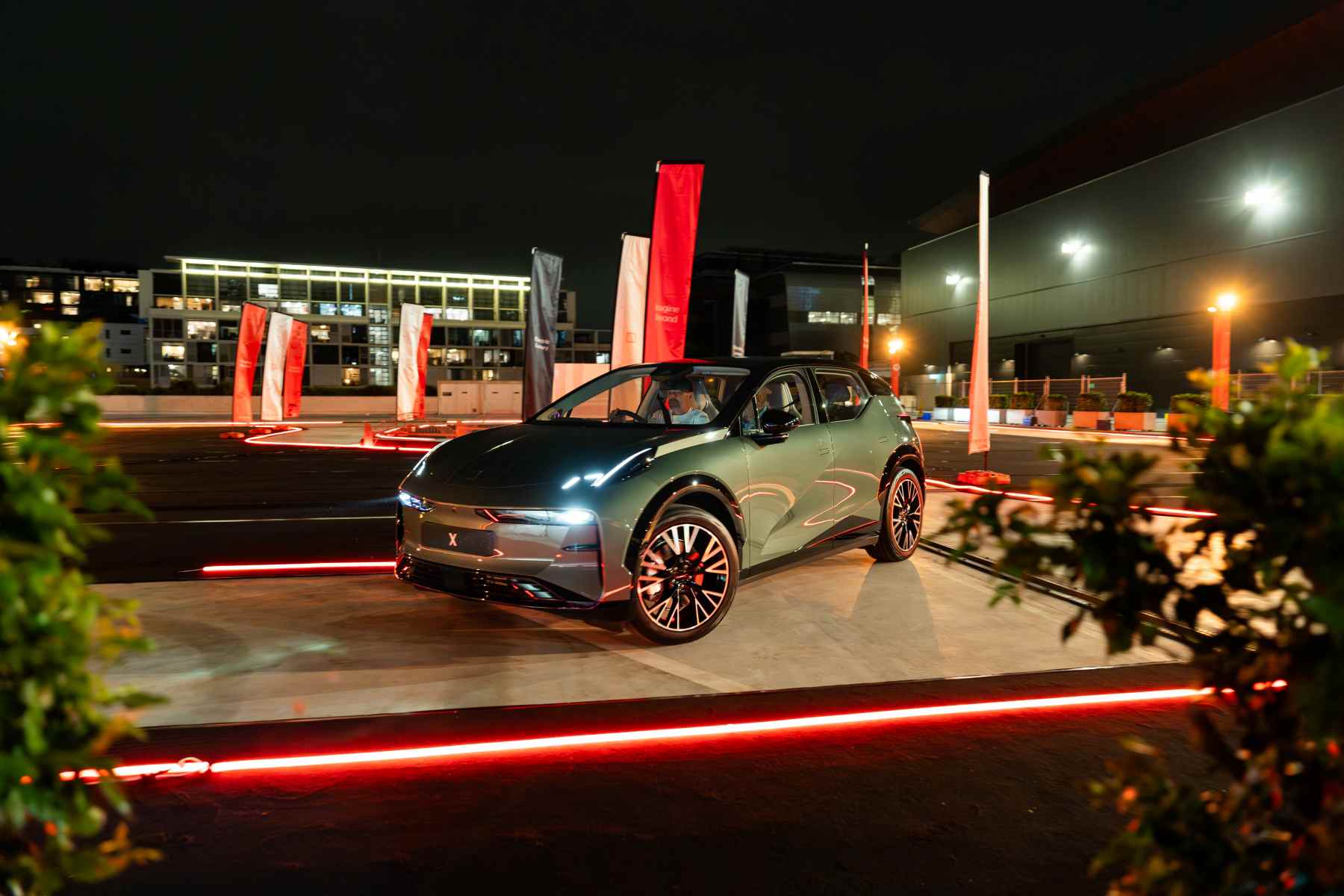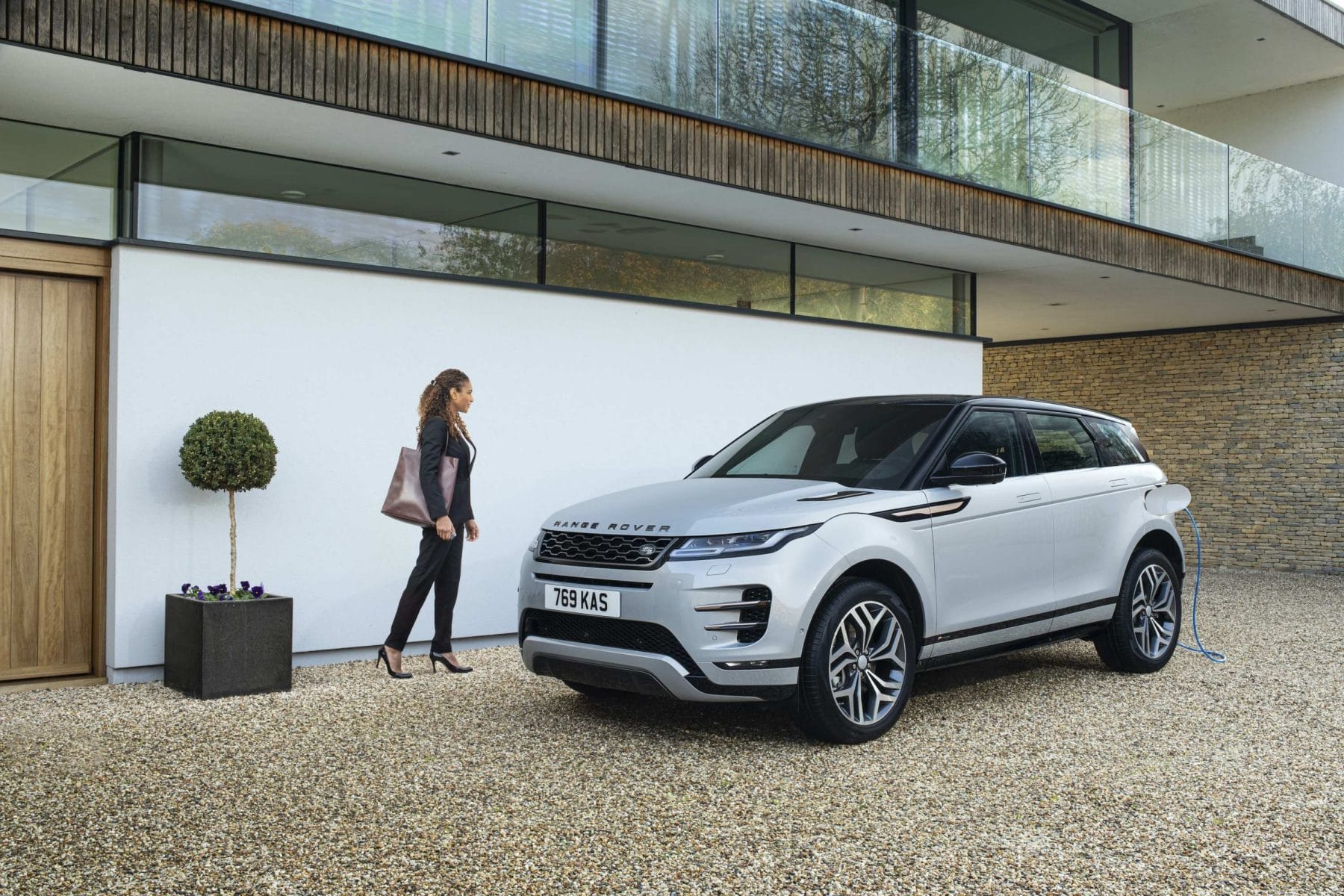 The new Range Rover Evoque is now available with plug-in hybrid electric vehicle (PHEV) technology, delivering the performance, refinement and capability customers expect together with an electric-only range of up to 66km and CO2 emissions as low as 32g/km.
The new Range Rover Evoque is now available with plug-in hybrid electric vehicle (PHEV) technology, delivering the performance, refinement and capability customers expect together with an electric-only range of up to 66km and CO2 emissions as low as 32g/km.
- Electrified: The Range Rover Evoque is now available as an efficient plug-in hybrid with CO2 emissions from only 32g/km and an all-electric range of up to 66km* – enough to do the average daily commute without recharging
- Efficient, refined, capable: New 147kW three-cylinder 1.5-litre Ingenium petrol engine and smooth-shifting new eight-speed automatic transmission combined with a 80kW Electric Rear Axle Drive motor deliver low fuel consumption, excellent performance and Land Rover’s signature all-wheel-drive capability
- Cost-effective: Customers and businesses can make significant financial savings thanks to fuel consumption as low as 1.4L/100km (201.8mpg)*
- Fast, easy charging: 0-80 per cent in as little as 30 minutes using 32kW DC public charging or just 1hr 24mins using a 7kW AC wallbox
- Smart, flexible: PHEV system can operate in electric-only mode, combustion engine-only mode, or a combination, using GPS and navigation data to optimise efficiency on every journey
- Customer choice: The Range Rover Evoque PHEV model is badged P300e and available in HSE specification, as standard or R-Dynamic, with a range of wheel designs from 18 to 20 inches
- Australian deliveries: New Range Rover Evoque P300e PHEV is expected to be available for delivery in Australia early 2021. Pricing to be announced closer to launch.
Badged P300e, the new Range Rover Evoque plug-in hybrid is based on Land Rover’s state-of-the-art Premium Transverse architecture, which was designed to support electrification while maintaining Land Rover’s signature off-road capability. The new plug-in hybrid P300e model joins the existing 48-volt mild-hybrid SUV in the range, bringing new levels of efficiency to the premium compact SUV sector.
The new Range Rover Evoque P300e offers sustainable performance by combining a 147kW 1.5-litre three-cylinder Ingenium petrol engine with an 80kW electric motor integrated into the rear axle and powered by a 15kWh lithium-ion battery located below the rear seats. Performance and capability are uncompromised, with acceleration of 0-100km/h in just 6.4 seconds.
Efficiency is remarkable: the Range Rover Evoque P300e emits just 32g/km of CO2 (WLTP) and has an all-electric, zero tailpipe emission range of up to 66km, with fuel economy of 1.4L/100km (201.8mpg)
Range Rover Evoque P300e
- Total power / torque output: 227kW / 540Nm[1]
- Combined WLTP fuel economy: 1.4L/100km
- Combined WLTP CO2 emissions: 32g/km
- EV-only range: 66km
- Rapid charging time: 0-80 per cent in 30 minutes*
Driver-selectable modes
Drivers can select from three driving modes to best suit their needs, whether they’re in the city or driving on the highway:
- HYBRID mode (the default driving mode) – automatically combines power from the electric motor and petrol engine. The operating strategy adapts to driving conditions and the remaining charge in the battery. Entering a destination in the navigation system enables the Predictive Energy Optimisation (PEO) function to intelligently integrate route and GPS data to maximise efficiency and comfort for the selected journey.
- EV (Electric Vehicle) mode – enables the vehicle to run solely on the electric motor using the energy stored in the battery, for quiet, zero-tailpipe emission journeys.
- SAVE mode – prioritises the combustion engine as its main power source, maintaining battery State of Charge at the chosen level.
PHEV technology
The new Range Rover Evoque P300e uses Land Rover’s Premium Transverse Architecture, which was designed from the outset to accommodate plug-in and mild-hybrid technologies. The hardware is cleverly packaged beneath the cabin floor without compromising interior space.
The Electric Rear Axle Drive (ERAD) is powered by a compact 15kWh lithium-ion battery located below the rear seats. The battery is made up of 84 prismatic cells, arranged in seven 50Ah modules of 12, with a 6mm-thick steel undertray that protects the battery without compromising the vehicle’s hallmark all-terrain capability.
The advanced Electric Rear Axle Drive (ERAD) features a light, compact and efficient synchronous permanent magnet motor. To optimise package space, the driveshafts are concentric with the motor and single-speed transmission, while the inverter is also integrated within the ERAD casing. The ERAD module is neatly integrated within the Integral Link rear suspension system.
At speeds above 135km/h, the electric motor is decoupled to reduce drag and therefore optimise efficiency, and then seamlessly re-engages when the speed falls below this.
The compact high-voltage junction box (HVJB) under the front seats is another engineering innovation. This comprises the DC: DC converter (changes high-voltage current from the hybrid battery to low voltage to support the 12-volt network) and the 7kW on-board charger used to charge the hybrid battery when the vehicle is plugged in.
Packaged next to this is the Belt-integrated Starter Generator (BiSG) Inverter which, through intelligent electrical management, can send recuperation energy to the high-voltage battery for storage to use later or for immediate redeployment to support full all-wheel drive capability.
A new brake-by-wire system replaces the traditional brake vacuum servo, and seamlessly blends regenerative and friction braking to provide a consistent and precise pedal feel. The system can deliver up to 0.2g of deceleration under regenerative braking, maximising energy efficiency by using the vehicle’s kinetic energy to recharge the battery on the overrun.
Intelligently locating the PHEV system throughout the structure improves dynamics, lowering the centre of gravity by six per cent and further optimising front-rear weight distribution.
Charging
The new PHEV model is available with a Mode 2 Home Charging Cable, enabling customers to fully charge the vehicle from a plug socket in 6hrs 42mins, which is perfect for overnight charging. For faster charging, the Mode 3 Charging Cable enables customers to plug-in to a 7kW AC domestic wall box or AC public charge points: this enables charging from 0-80 per cent in just 1hr 24mins. The quickest charge times are achieved using the growing public charging network of DC charge points: at 32KW DC, 0-80 per cent takes just 30 minutes.
The charge port flap is located on the rear fender – on the opposite side of the vehicle to the fuel filler flap.
Customers can stay connected to their Range Rover Evoque PHEV via Land Rover’s intelligent InControl Remote^ smartphone application. Whether at home or out and about, the app allows customers to monitor the vehicle’s charge status, ready the vehicle for the journey ahead or even set a charging timer to take advantage of off-peak energy tariffs.
Owners can automatically pre-condition the battery and cabin temperature before starting a journey: using mains power to do this when the vehicle is plugged in rather than drawing energy from the battery when you start driving maximises range and enhances occupant comfort.
1.5-litre three-cylinder engine
A state-of-the-art 1.5-litre three-cylinder petrol engine is at the heart of the new Range Rover Evoque P300e. The new engine is the latest member of the modular, flexible Ingenium engine family, which now has three-, four- and six-cylinder variants.
The lightweight aluminium engine – 37kg lighter than the four-cylinder – delivers strong performance and refinement with impressive fuel economy.
This small-capacity engine achieves exceptionally low levels of friction, which contribute to its excellent efficiency. The exhaust manifold is integrated into the aluminium cylinder head, contributing to the rapid warm-up times and minimising the distance from the exhaust ports to the turbocharger’s turbine wheel for improved responsiveness.
The three-cylinder configuration delivers a better flow of exhaust gases, ensuring the turbine wheel delivers boost pressure almost instantaneously. A highly efficient water cooled Charge Air Cooler means the density of air being drawn into the combustion chambers remains high, further enhancing performance and efficiency across the engine’s operating range.
The three-cylinder – like the four-cylinder mild hybrid models – also features a belt-integrated starter-generator (BISG) unit. This works alongside the ERAD to deliver regenerative braking, recharging the battery on the overrun, and also enables smoother, quieter and faster stop-start operation than a traditional starter motor.
New eight-speed automatic transmission
A smooth new eight-speed automatic transmission has been selected to match the power and torque delivery of the three-cylinder engine and work seamlessly with the ERAD. As well as being 5kg lighter than the nine-speed transmission used in the other models, the new eight-speed delivers enhanced refinement and shift feel, and is an integral part of the hybrid system.
Cost of ownership
In Australia, the average vehicle commute is 31km a day. The RR Evoque PHEV can drive to work and back twice in EV Mode before needing a recharge.
As well as saving money on energy and spending much less time at the pumps, PHEV customers can also expect to benefit from strong residual values.
The Range Rover Evoque P300e PHEV is expected to be launched in Australia during second quarter 2021.

